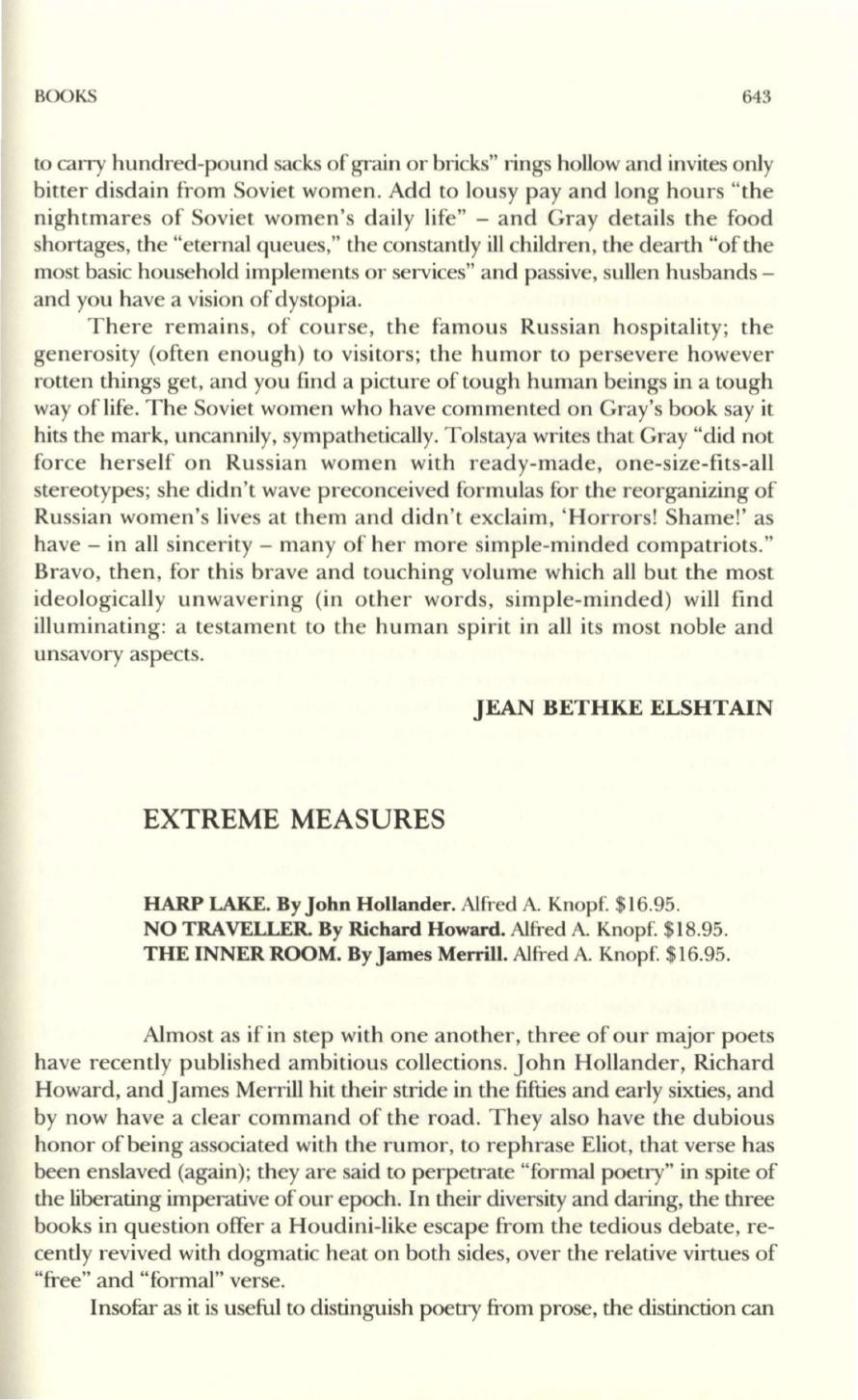
BOOKS
643
to
carry
hundred-pound sacks of
grain
or bricks" rings hollow and invites only
bitter disdain from Soviet women. Add to lousy pay and long hours "the
nightmares of Soviet women's daily life" - and Gray details the food
shortages, the "eternal queues," the constantly
ill
children, the dearth "of the
most basic household implements or services" and passive, sullen husbands -
and you have a vision of dystopia.
There remains, of course, the famous Russian hospitality; the
generosity (often enough) to visitors; the humor to persevere however
rotten things get, and you find a picture of tough human beings in a tough
way oflife. The Soviet women who have commented on Gray's book say it
hits the mark, uncannily, sympathetically. Tolstaya writes that Gray "did not
force herself on Russian women with ready-made, one-size-fits-all
stereotypes; she didn't wave preconceived formulas for the reorganizing of
Russian women's lives at them and didn't exclaim, ' Horrors! Shame!' as
have - in all sincerity - many of her more simple-minded compatriots."
Bravo, then , for this brave and touching volume which all but the most
ideologically unwavering (in other words, simple-minded) will find
illuminating: a testament to the human spirit in all its most noble and
unsavory aspects.
JEAN BETHKE ELSHTAIN
EXTREME MEASURES
HARP LAKE.
By John Hollander.
Alfred A Knopf. 16.95.
NO TRAVELLER. By Richard Howard.
Alfred A Knopf. $18.95.
THE INNER ROOM. By James Merrill.
Alfred A Knopf. $16.95.
Almost
as if in step with one another, three of our major poets
have recently published ambitious collections. John Hollander, Richard
Howard, and James Merrill hit their stride in the fIfties and early sixties, and
by now have a clear command of the road. They also have the dubious
honor of being associated with the rumor, to rephrase Eliot, that verse has
been enslaved (again); they are said
to
perpetrate "formal poetry" in spite of
the liberating imperative of our epoch.
In
their diversity and daring, the three
books in question offer a Houdini-like escape from the tedious debate, re–
cently revived with dogmatic heat on both sides, over the relative virtues of
"free" and "formal" verse.
Insofar as it is useful to distinguish poetry from prose, the distinction can


